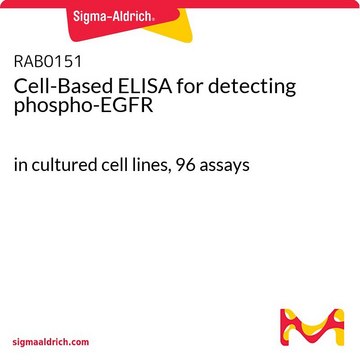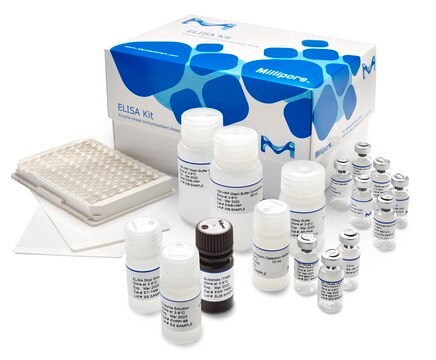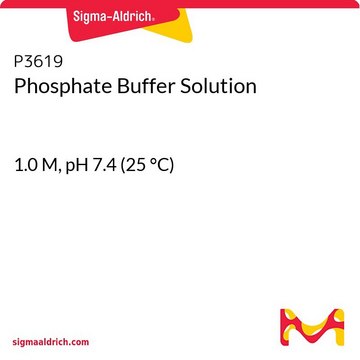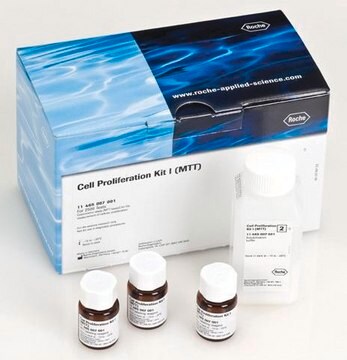RAB0202
Glucagon EIA Kit
for serum, plasma, culture supernatant and cell lysates
Sign Into View Organizational & Contract Pricing
All Photos(1)
About This Item
UNSPSC Code:
41116158
NACRES:
NA.32
Recommended Products
species reactivity
human, rat, mouse
packaging
kit of 96 wells (12 strips x 8 wells)
technique(s)
ELISA: suitable
enzyme immunoassay: suitable
input
sample type serum
sample type cell lysate
sample type culture supernatant(s)
sample type plasma
assay range
inter-assay cv: <15%
intra-assay cv: <10%
sensitivity: 4.77 pg/mL
standard curve range: 1–1000 pg/mL
detection method
colorimetric
shipped in
wet ice
storage temp.
−20°C
Gene Information
human ... GCG(2641)
General description
The Glucagon Enzyme Immunoassay (EIA) Kit is an in vitro quantitative assay for detecting Glucagon peptide based on the principle of Competitive Enzyme Immunoassay.
Immunogen
Glucagon , synthetic peptide
Application
For research use only. Not for use in diagnostic procedures.
Please refer to the attached General ELISA KIT Procedure (sandwich, competitive & Indirect ELISA)
Please refer to the attached General ELISA KIT Procedure (sandwich, competitive & Indirect ELISA)
Glucagon EIA Kit has been used in the quantification of glucagon in mice serum. It has also been used to quantitate glucagon in rat plasma.
Preparation Note
The recommended dilution for normal Serum and Plasma is 2 fold for this product.
recommended
Product No.
Description
Pricing
Signal Word
Warning
Hazard Statements
Precautionary Statements
Hazard Classifications
Met. Corr. 1
Storage Class Code
8A - Combustible corrosive hazardous materials
Choose from one of the most recent versions:
Already Own This Product?
Find documentation for the products that you have recently purchased in the Document Library.
Firdevs Mor et al.
Toxins, 9(4) (2017-04-20)
In this study, the diabetogenic effects of long term Ochratoxin A (OTA) administration in rats were investigated, and its role in the etiology of diabetes mellitus (DM) was examined utilizing 42 female Wistar rats for these purposes. The rats were
Deletion of astrocytic BMAL1 results in metabolic imbalance and shorter lifespan in mice
Barca-Mayo O, et al.
Glia, 68(6), 1131-1147 (2020)
High mobility group protein B1 controls liver cancer initiation through yes-associated protein-dependent aerobic glycolysis
Chen R, et al.
Hepatology, 67(5), 1823-1841 (2018)
Diabetogenic Effects of Ochratoxin A in Female Rats
Mor F, et al.
Toxins, 9(4), 144-144 (2017)
Wang Liao et al.
Diabetes, 70(3), 696-709 (2021-01-08)
The liver is a key player for maintaining glucose homeostasis. Excessive hepatic glucose production is considered to be a key for the onset of type 2 diabetes. The primary function of heme oxygenase-1 (HO1) is to catalyze the degradation of
Our team of scientists has experience in all areas of research including Life Science, Material Science, Chemical Synthesis, Chromatography, Analytical and many others.
Contact Technical Service








